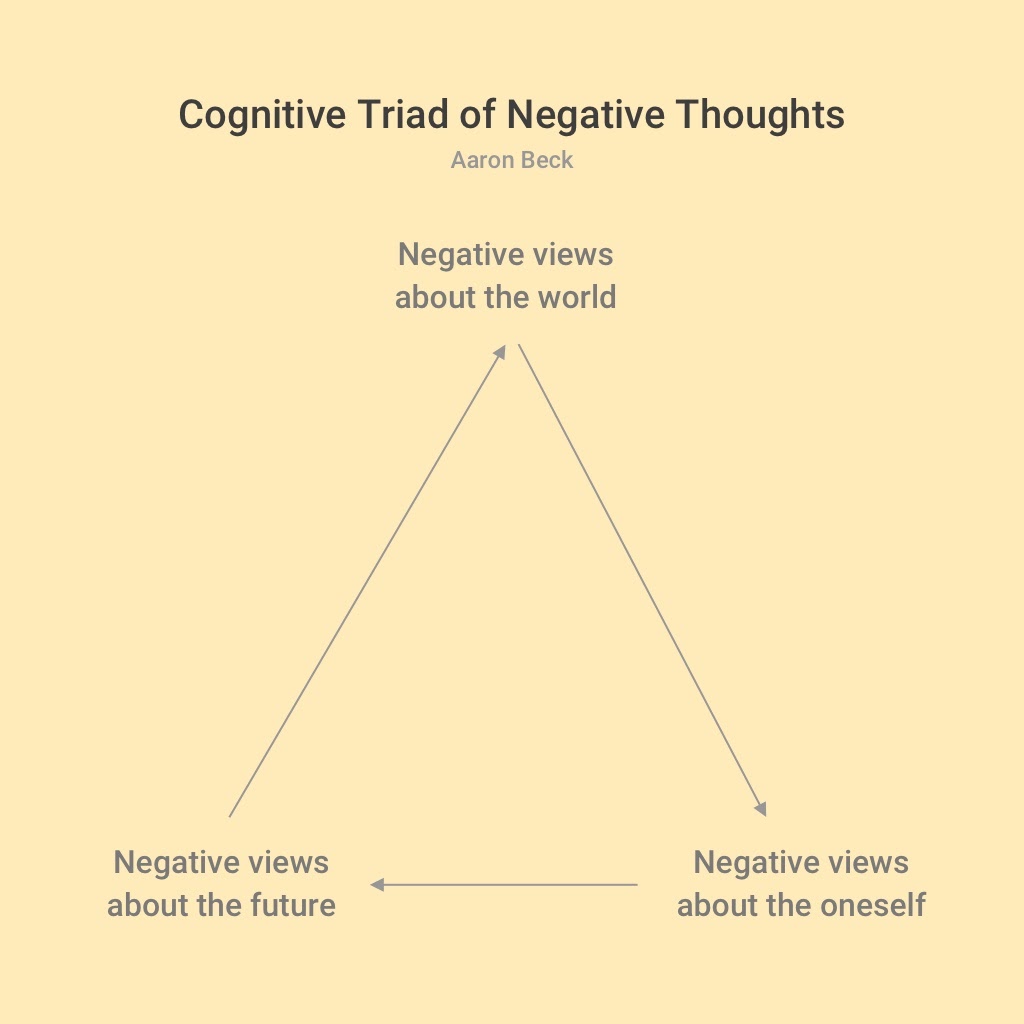The Cognitive Triad is a cognitive model developed by American psychiatrist Aaron Beck to describe the cause of the mental health disorder depression. Beck proposed that there were three types of negative thoughts that ultimately lead to an individual developing depression, these are as follows:
- Thoughts about the self
- Thoughts about the future
- Beliefs about the world or the current environment
Individuals who suffer from depression will attribute unpleasant and harmful events or situations to their failings within their lives due to such an ‘ unforgiving world’. Individuals suffering from depression will generally view the world as very bare and soulless, with the mentality of their current troubles or suffering lasting forever.
Examples of negative thinking from individuals suffering from depression can include:
The self:
‘I wish I were different; I am completely worthless.’
The world:
‘I am constantly ignored by everyone; no one ever does or ever will value what I do.’
The future:
‘Things will never get any better for me; everything will always get worse.’
Beck’s research and work further led to identifying that individuals display particular patterns of maladaptive and habitual thinking, which he went on to call ‘errors of thought’.

Possibly causation of depression
Depression is a persistent problem; it will take hold of an individual’s mental health very quickly. If an individual is to receive help, depression can last anywhere between six to eight months; however, if an individual is to leave their mental health disorder to fester, it can last years whilst severely affecting the individual quality of life.
The causes of depression are multifaceted:
- Biological changes within the neurotransmitter level of the brain
- Genetics
- Environmental or psychosocial
- Childhood trauma
- Chronic pain
Components of the cognitive triad
Components of this cognitive trial will very often feed into and strengthen one another. With the individual becoming completely consumed into focusing on only the negatives. If you ask a depressed loved one “What’s going well in your life”, they will often be unable to answer without mentioning the negative situations within their lives.







